UPDATE (July 01, 2022):
The Government of Saudi Arabia has introduced an online medical consultation service to facilitate the pilgrims performing Hajj in 2022. Launched by Saudi Health Minister Fahad Al-Jalajel, the “holodoctor” service will enable pilgrims to complete all the rituals comfortably and safely by connecting them to medical practitioners virtually.
According to the Saudi Press Agency, the holodoctor services will include “inspection, diagnosis, and disbursing medicines.” The patients will be able to make direct contact with the Seha Virtual Hospital in Riyadh, which is also equipped to provide aid to those suffering from strokes or other serious conditions. Furthermore, the virtual hospital offers 24-hour access to x-rays.
It is also important to mention that the online service was established in collaboration with the Saudi Telecommunications Co.
Hajj, the annual Muslim pilgrimage to Mecca in Saudi Arabia, is considered the largest religious mass gathering in the world.
Although the COVID-19 pandemic and the subsequent global restrictions on movement greatly impacted the number of pilgrims attending the holy pilgrimage in the past two years, things are finally getting back to normal. According to the reports, the Kingdom is preparing to welcome around 850,000 foreign pilgrims in 2022, which is a stark contrast to 60,000 domestic pilgrims in 2021.
Given the fact that Hajj requires a lot of walking and sees people from all across the world congregate in one spot to fulfil their religious duties, sporadic outbreaks of various diseases and infections among the pilgrims are somewhat of a common occurrence. Now, with coronavirus cases rising once again, it has become more important than ever for the pilgrims to take care of themselves and stay healthy during Hajj.
In order to avoid any severe epidemics, the Government of Saudi Arabia has made it mandatory for all pilgrims to get certain vaccinations before obtaining a visa.
Vaccinations Required For Hajj
While vaccinations vary with each country, here are the mandatory vaccine the residents of Pakistan need to get before travelling to Saudi Arabia for the Hajj pilgrimage:
- COVID-19 vaccine
- Meningococcal Meningitis
- Poliomyelitis
- Seasonal influenza
The Saudi government also recommends vaccines against diseases such as Hepatitis A, Pneumonia, Hepatitis B, Typhoid and Tetanus.
Although these inoculations are certainly important, they don’t guarantee a healthy and safe Hajj pilgrimage. Therefore, if you or someone you know is undertaking the holy pilgrimage this year, here are a few Hajj health guidelines that can be extremely helpful.
COVID-19 Protocols During Hajj 2022
There is no denying that Saudi Arabia has significantly relaxed its COVID-19 protocols for Hajj 2022. As per the new guidelines, pilgrims will still be required to wear masks in the sacred cities of Makkah and Madinah. However, events and festival organizers have the liberty to mandate masks if they choose to. Moreover, apart from the requirement of negative PCR tests taken within 72 hours before their flights, the pilgrims are expected to have a vaccination certificate on their mobile phones to make all the processes swift and smooth.
Tips To Stay Healthy During Hajj 2022
Here are some essentials steps for a healthy Hajj no one should ignore:
- Drink a lot of water
- If something doesn’t taste right, don’t eat it
- Frequently wash or sanitize your hands
- Pay extra attention to hygiene
- Avoid hugging and shaking hands
- Take multivitamins
- Don’t overexert yourself
Let’s further discuss ways to stay healthy during Hajj.
Drink a Lot of Water
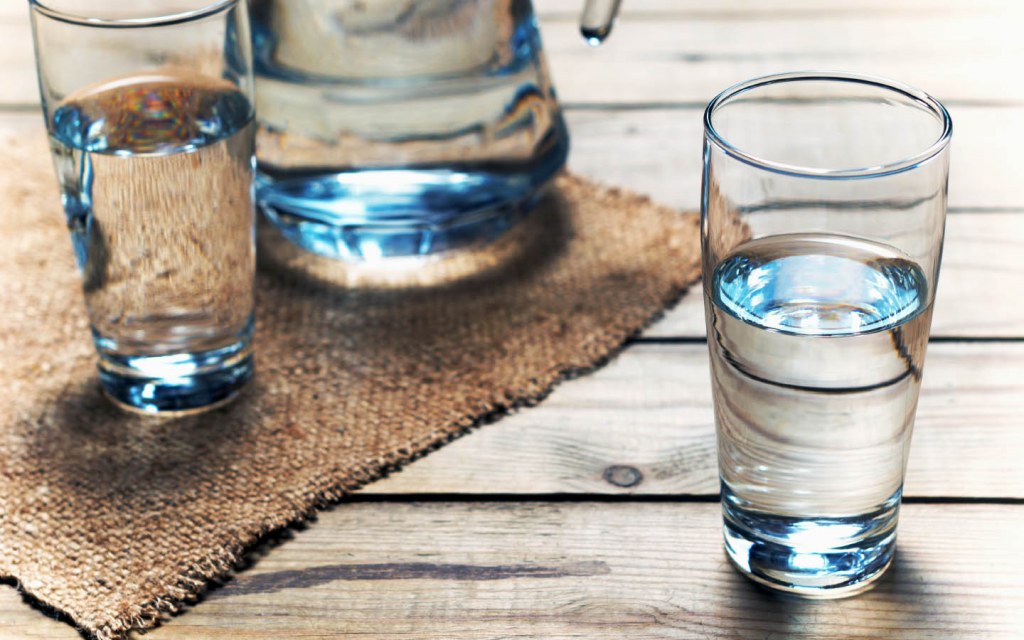
One of the best things you can do to avoid problems during Hajj is to stay hydrated.
Since Hajj 2022 is taking place during the month of July, the temperature will likely remain above 40 degrees Celsius for the entire duration, according to the weather predictions. In order to avoid getting heat strokes, it’s important for pilgrims to drink a lot of fluids during their journey. While packed juices are good for your health, nothing beats water, which is more readily available.
In order to stay healthy during Hajj, you should ideally consume about 10 to 12 glasses of water every day.
If Something Doesn’t Taste Right, Don’t Eat It
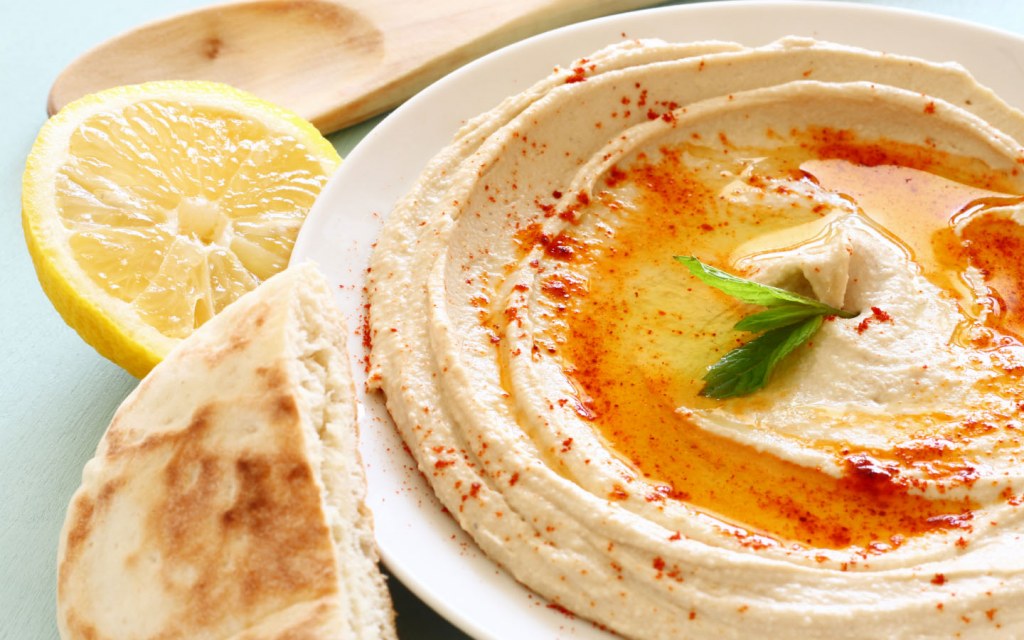
One needs to be careful about what to eat and drink during Hajj.
Unfortunately, diarrhoea is the most common ailment that pilgrims suffer during this trip. Although there are a number of things that can lead to this condition, food poisoning remains the biggest cause.
Since people are bound to buy food from local vendors, they may end up consuming food that is either undercooked or contaminated. This can lead to nausea, vomiting, abdominal cramps and diarrhoea, which results in the person feeling weak and even unable to walk.
The best way to avoid food poisoning is to be mindful of your eating habits during Hajj. Don’t eat chicken that still looks a little pink or vegetables that smell a little funny. Instead, you can eat packaged and canned food as it has a longer shelf life and is generally less risky to consume while travelling.
Moreover, avoid fatty and deep-fried food items to maintain a balanced diet during Hajj.
Frequently Wash or Sanitize Your Hands
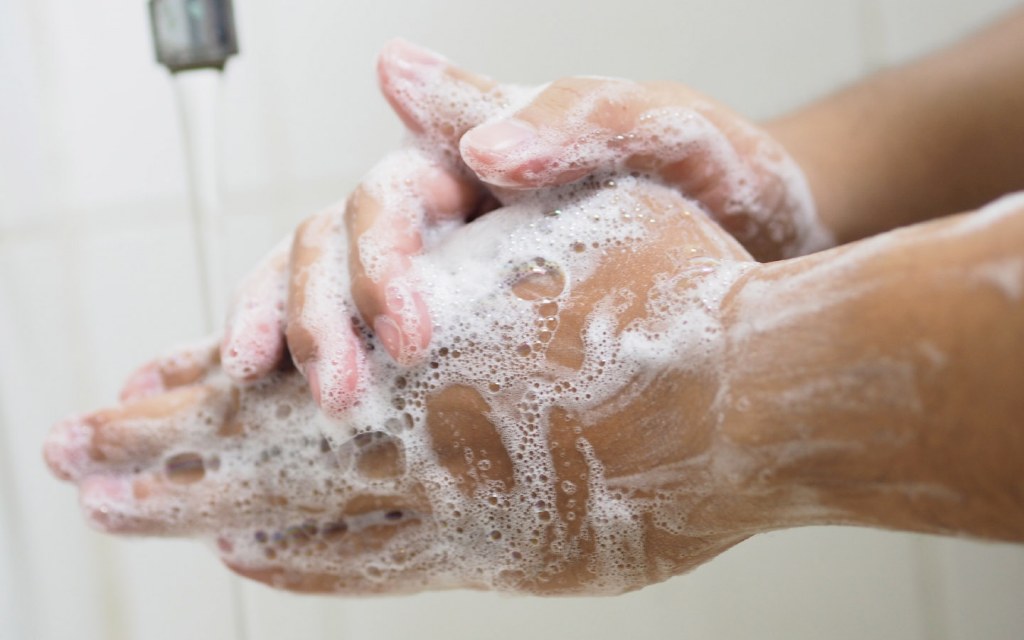
Another piece of advice for a healthy Hajj pilgrimage is to wash your hands as frequently as you can. You need to do this particularly before and after eating, using the bathroom, coughing, sneezing and blowing your nose. In case you have to treat a wound, make sure you don’t touch it without thoroughly washing your hands with soap and water despite how clean they might look.
However, if you are unable to wash your hands, carry a small bottle of hand sanitiser in your bag and use it when needed. This will help you stay healthy during Hajj by reducing the spread of germs and illnesses. It will also keep you safe from coronavirus.
Furthermore, since you are always at the risk of contracting an infection from other pilgrims, try and refrain from touching your eyes, nose or mouth as much as possible.
Pay Extra Attention to Hygiene
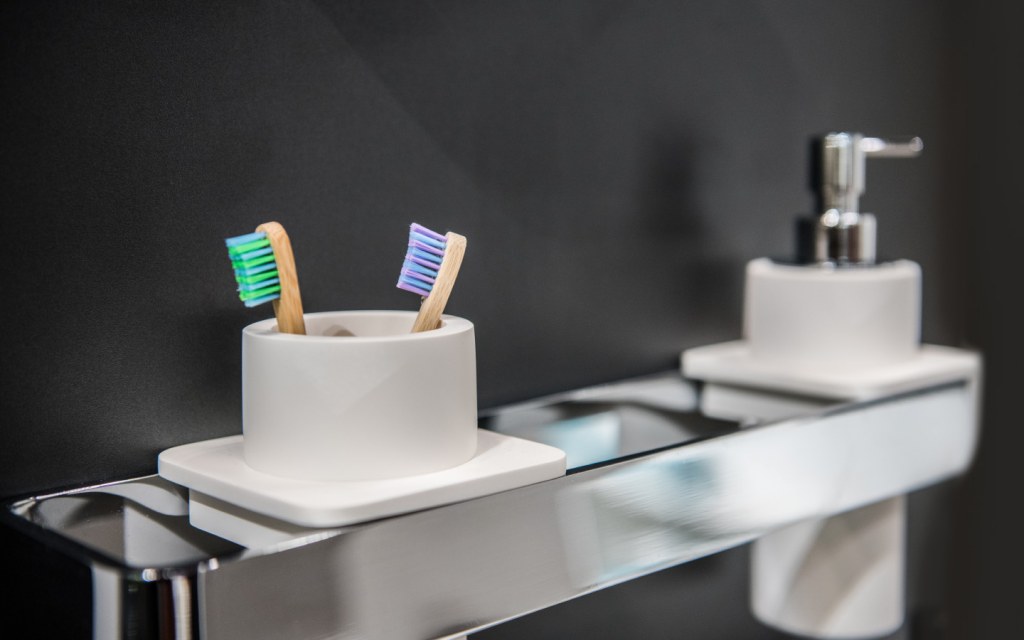
Maintaining personal hygiene and general cleanliness is not only the best way to overcome health problems during pilgrimage but also one of the important Hajj steps. Apart from showering regularly, frequently changing clothes and washing hands, you need to be careful about a few other things as well. For instance, always use handkerchiefs or tissue paper while sneezing or blowing your nose.
Moreover, since pilgrims are supposed to get their heads shaved and hair trimmed during Hajj, make sure the barber either uses single-use shavers or changes razors after every use. You should also ask the barber to wash his hands and clean his tools before using them on you.
Also, pay close attention to your oral hygiene to stay healthy during Hajj.
Avoid Hugging and Shaking Hands
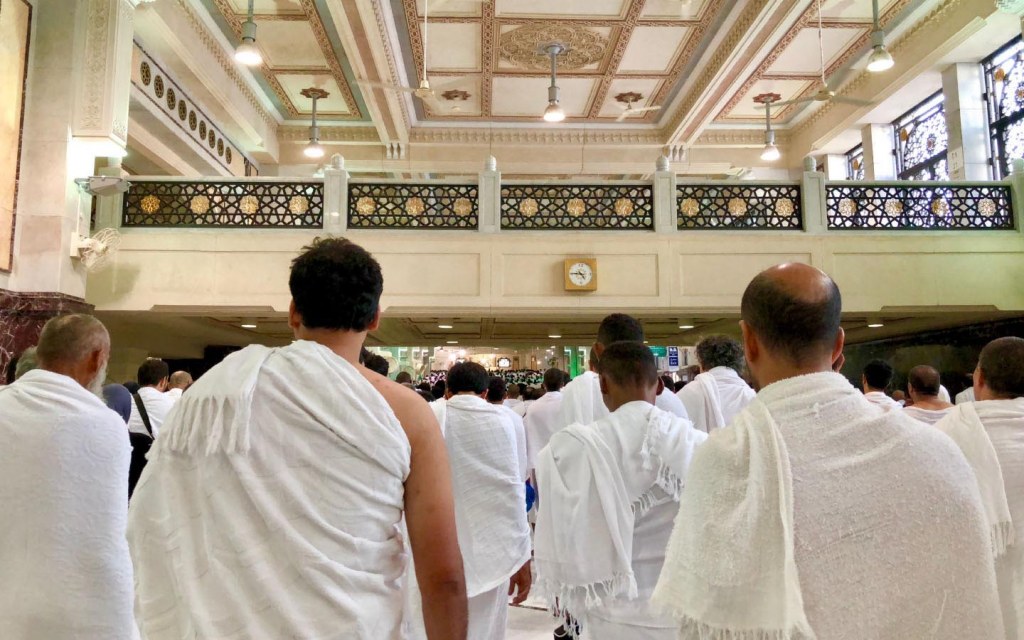
People must avoid shaking hands or hugging each other for the same reason as above. Coronavirus as well as influenza can spread rather quickly, the latter often leading to pneumonia. As we all know, getting medical treatment during the Hajj pilgrimage is not an easy task due to the influx of pilgrims from all across the world. If absolutely needed, opt to pat people on their backs.
Remember, you are responsible for your own health care during Hajj. Since you never know if another pilgrim could be a victim of an air-borne or water-borne illness, it’s just better to maintain a safe a respectful distance for the entire duration of your stay in Saudi Arabia. However, you must be extra vigilant during the actual pilgrimage, as dehydration and overexertion tend to weaken your immune system, putting you more at risk of contracting something harmful.
Take multivitamins
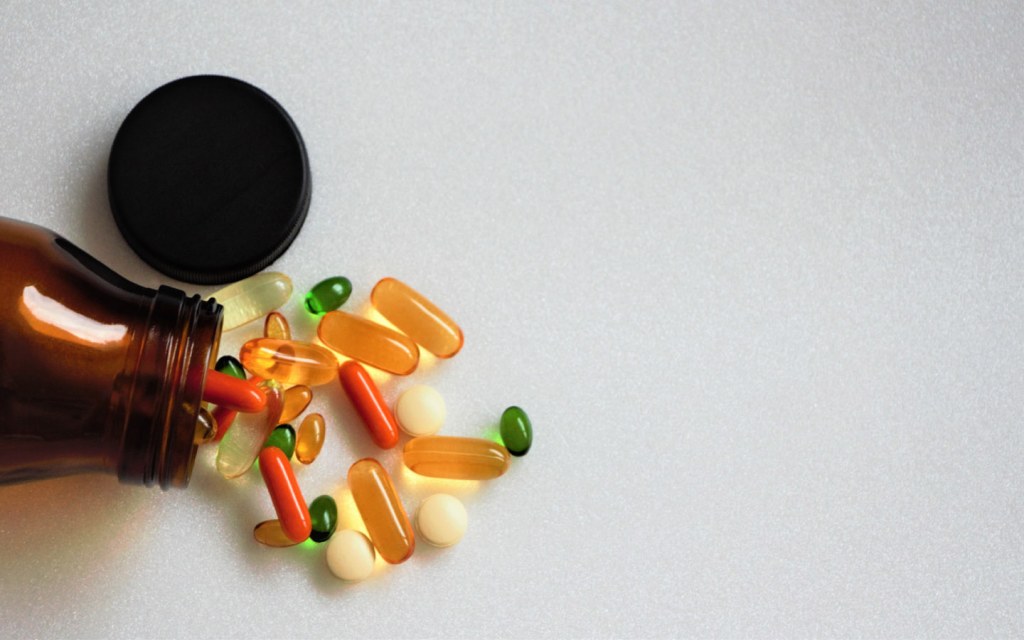
Wondering what to do for an active Hajj? Well, you can start off by taking some multivitamins to boost your immune system and strengthen your body. Along with maintaining healthy eating habits during Hajj, pilgrims should also consider taking supplements containing Vitamin B, Vitamin C, Vitamin D, calcium and magnesium as part of their diet.
While Vitamin B increases your energy, Vitamin C helps build immunity. Furthermore, Vitamin D and calcium are great for your bones and joints while Magnesium helps relieve anxiety and stress, thus relaxing your body and heart.
However, make sure to consult your doctor before taking any multivitamins or any other kind of medication.
Don’t overexert yourself
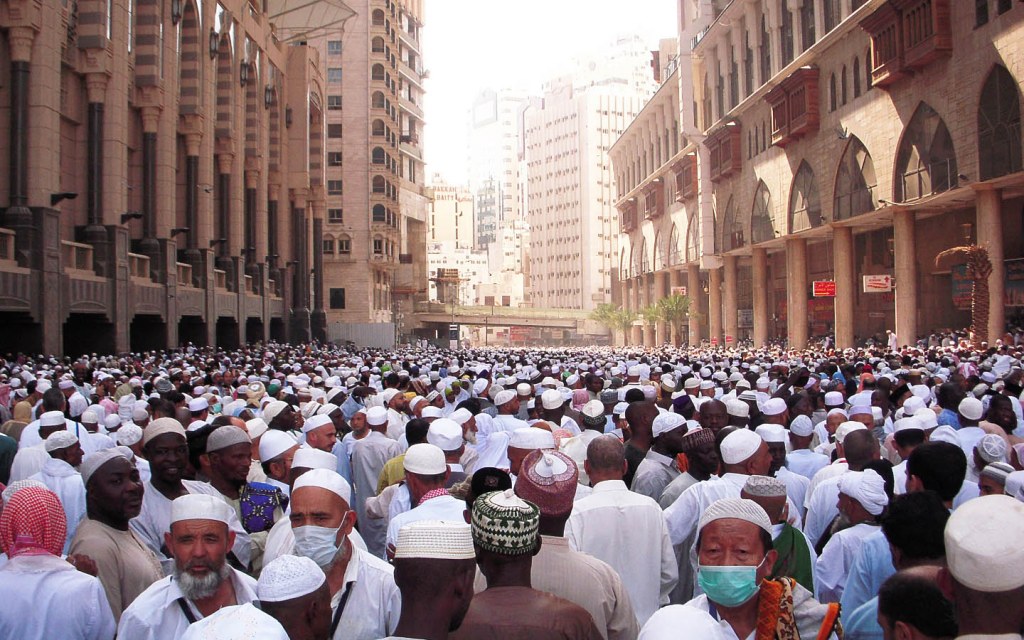
Hajj requires a lot of walking, which can be strenuous for some depending on the weather conditions and one’s overall health. Since most Muslims wait until they are in their old age to make the sacred pilgrimage, many of them suffer from pre-existing cardiac conditions. This can lead to heart attacks and other cardiovascular diseases. According to Saudi health officials, this is the leading cause of death among pilgrims each year.
However, this doesn’t mean those with such conditions should not make the pilgrimage. All you need to do is take your medication on a regular basis and refrain from overexerting yourself. Moreover, although medical facilities during Hajj are hard to come by, pilgrims must consult a doctor or a medical practitioner if they start noticing any cardiac symptoms during their journey.
Similarly, if you experience sudden bouts of chills and nausea or just feel dizzy, you can be suffering from a heat stroke. No matter where you are in the world, the tips to treat a heat stroke remain more or less the same. In such an instance, take refuge under the nearest shade and drench yourself with cold water. In order to stay healthy during Hajj, seek medical help as soon as possible.
Meanwhile, here are a few more general tips on how to avoid getting sick while travelling that may be beneficial to you.
For more travel-related information and tips, stay tuned to Zameen Blog, the best lifestyle blog in Pakistan. You can also write to us at blog@zameen.com and visit our Facebook page for the latest updates about real estate trends in the country.



